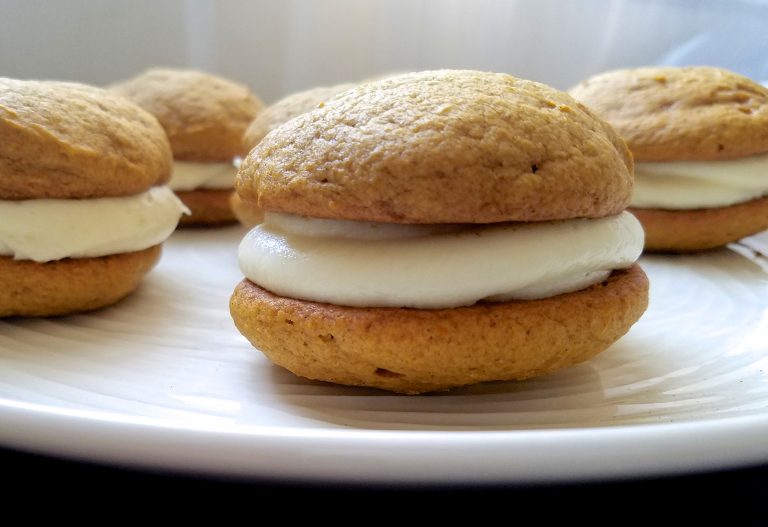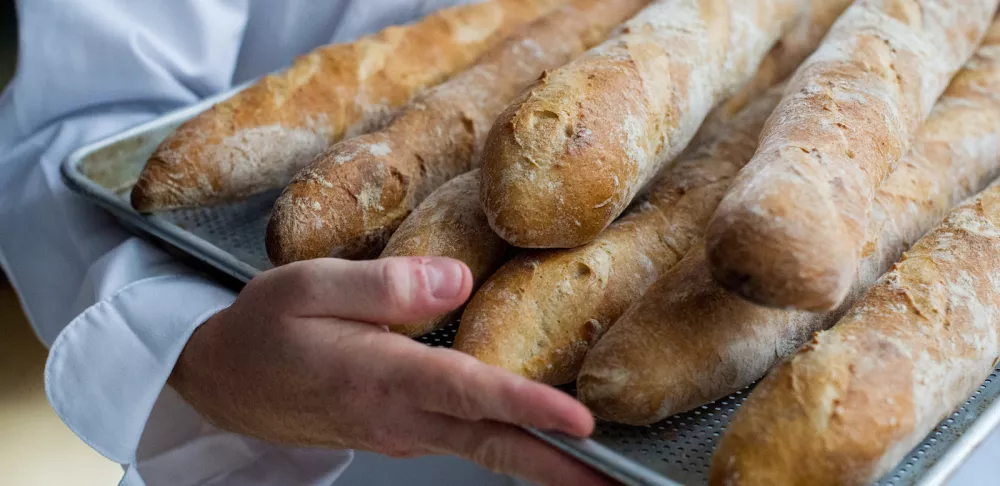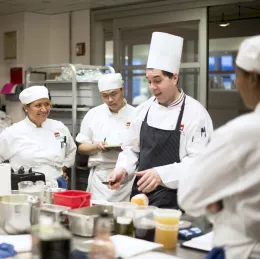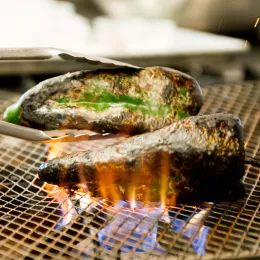To most, the general difference between cooking and baking is that cooking involves tasting, adjusting to your preferences and the ability to follow a recipe loosely; while baking is precise, measured, detailed and must strictly follow that recipe. With this knowledge in hand, I embarked on the seemingly rebellious Rule Breaking Baking: Baking without Measuring class with Chef Melanie Underwood at ICE.

The premise of the class is to learn to bake the way we cook – and to think independently about measuring or not measuring! Here are the biggest lessons I learned in this class:
Think About Seasonality
The key is to think about the flavors of what you’re baking before you start – you don’t have to follow the recipe to a “t.” Is it winter and the recipe calls for plums? Then you’re probably going to want to add more sugar to supplement the tart flavor of that out-of-season fruit. But if it’s the middle of August, then you may want to reduce your sugar to account for how ripe and sweet those plums will be.
Let Your Tastes Dictate the Ingredients
When you see a flavoring ingredient in the recipe, like chocolate or cocoa powder, coffee, orange juice or zest, vanilla, etc., this is the perfect opportunity to break the rules and make the recipe your own. For instance, in the class, rather than following the exact recipe for a strawberry-chocolate ice cream (to go with the rhubarb crisp), I chose to replace cocoa powder with lemon juice, citrus zest and thyme for a fresher flavor profile.
Measure by Hand
While it takes some practice, most measurements can be done by hand and eye, rather than with a measuring cup. Start practicing by measuring a cup of flour or sugar and then placing it in your hand. You can get a sense of how much a cup feels like and use that as a general measurement. After all, our grandmothers didn’t measure their flour meticulously, and how many of our favorite desserts came from their kitchens?
I also gleaned some interesting general baking tips that everyone – even the measuring sticklers – can benefit from:
- When zesting a lemon with a microplane, hold the lemon below the microplane and use it to “shave” off the zest. This will help prevent over-zesting and the risk of bitter pith in your batter.
- You can freeze leftover egg whites.
- A milk wash will produce a more rustic look while an egg wash gives baked goods a shinier finish.
- Roll out dough on parchment paper. That way, if it gets warm, you can just pick up the parchment and put it in the refrigerator to chill.
- Baked goods go stale more quickly when stored in the refrigerator (unless they have eggs as an ingredient).
Ready to up your baking game? Click here for a list of upcoming recreational classes at ICE.




